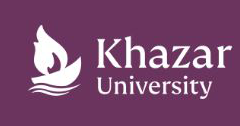Document Type
Original Study
Subject Areas
Psychology
Keywords
Language acquisition; multilingualism; Azerbaijani Turkish; English; Farsi
Abstract
This study aims at investigating the acquisition of spatial adjectives in a four-year-old multilingual child speaking Azerbaijani Turkish, English and Farsi. The subject of the current study has been exposed to the mentioned languages from birth. The opposite game is played for the elicitation of the adjectives. The results show that the child's answers are not the same in the three languages. For instance, he could produce kiçik for low in Azerbaijani Turkish but he could not produce the same adjective in English nor Farsi. Furthermore, the results of the current research do not completely agree with Clark (Clark, 1972)'s hierarchy of acquisition for spatial adjectives including big/little, tall/short, long/short, high/low, wide/narrow and thick/thin, respectively. For example, the child could produce arıq in Azerbaijani Turkish, small in English and کوچولو in Farsi for thin listed in Clark (Clark, 1972)'s hierarchy of acquisition for spatial adjectives as the most difficult adjective to acquire by children. Moreover, the child could not produce any words in the three languages he knew for low which is said to be acquired earlier than thin in Clark (Clark, 1972)'s hierarchy
How to Cite This Article
Shahiditabar, Mostafa
(2016)
"Acquisition of spatial adjectives in the case of a four-
year-old child knowing Azerbaijani Turkish, English
and Farsi: A case study of multilingualism,"
Khazar Journal of Humanities and Social Sciences: Vol. 19:
Iss.
3, Article 5.
DOI: 10.5782/2223-2621.2016.19.3.60
Available at:
https://kjhss.khazar.org/journal/vol19/iss3/5
Publication Date
2016

